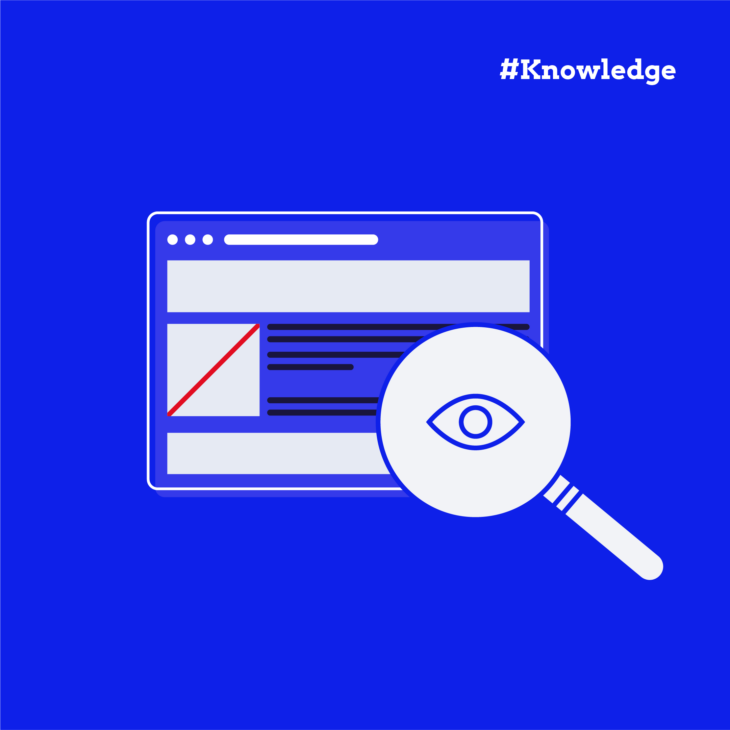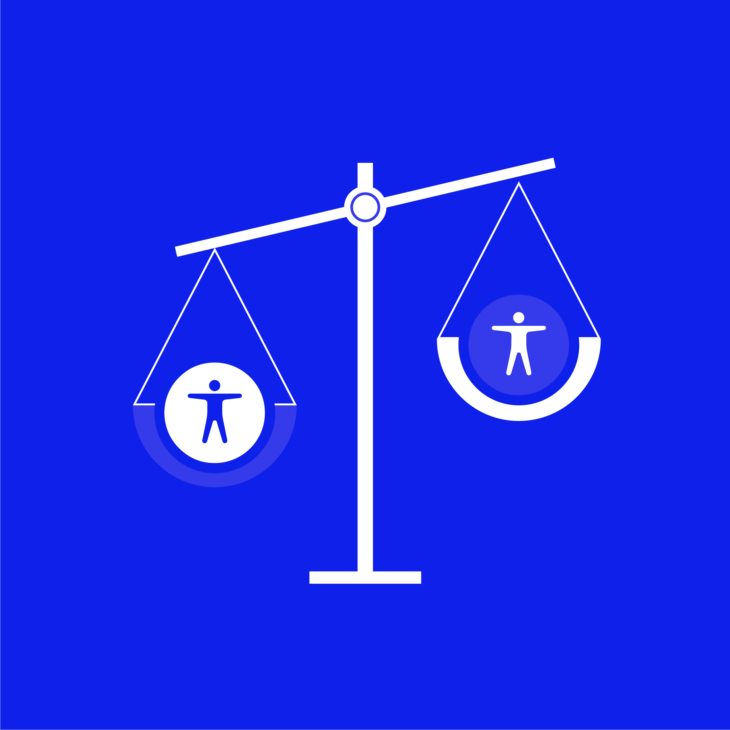We all benefit from an accessible web
When you read or hear the word “disability”, you probably think of someone who is blind, deaf, or someone who can’t walk and is therefore using a wheelchair. Well, you’re not the only one. But did you know that the word “disability” covers a much wider spectrum? We all might experience some sort of disability or impairment at some point in our lives. That’s why we would all benefit from an accessible web!
There are three types of disabilities:
- Permanent disability – This concerns people who have a disability that can’t be fixed/healed/taken away. For example deaf or (colour) blind people or people who have a cognitive disability or a motor impairment.
- Temporary disability – This concerns people with a physical or mental disability, which obstructs them for a (short) period of time. For example, people who had surgery and therefore can’t use their eyes or hands as they would normally do.
- Conditional or situational disability – This concerns people who are in a certain situation which stops them from doing what they want to do. For example when your laptop screen reflects bright sunlight or when you’re working from a place where it’s too busy and you can’t hear the audio from a video on a website.
And why is web accessibility so important?
Of course you want your audience to stay on your website and to find what they are looking for in the best possible way. But if you make some poor web accessibility choices, you give your users reasons to leave your website. Take a look at the following examples:
- Do you give your user a certain amount of time to fill in a form and they happen to suffer from anxiety? Then they will feel rushed, uncomfortable, anxious and will most likely click away the form.
- Blinking buttons and/or a video which can’t be paused? This can be very distracting, let alone if you have a concentration/attention disorder. Visitors might click away.
- Buttons with poor colour contrast, which can’t be read by someone who is partially blind or colour blind? They will leave too.
So you see there’s more to it than meets the eye! An accessible website ensures less loss of visitors and therefore potentially more revenue for you as a website owner.
A lot of similarities
Another thing to keep in mind is that the global population is ageing. As you get older, you could get age-related impairments which can hinder you while using the web. Imagine how nice it would be if you can just use your keyboard to navigate a website when you’re suffering from arthritis? The needs of the ageing audience are sometimes similar to the needs of people with disabilities. This is why websites and online services that are accessible to people with disabilities are directly more accessible to older users as well. And thus more accessible to a wider audience!
Now we gave you an idea of the importance of web accessibility. In our next blog we will talk about what designers can actually do to design more accessible websites. So stay tuned!





